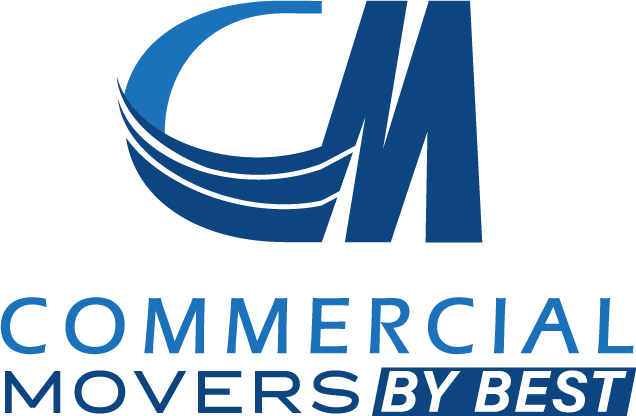Every business handles documents that matter—contracts, payroll records, client files, and more. When those papers go missing or end up damaged during relocation, it’s not just an inconvenience; it can cost money, time, and trust.
That’s why smart companies don’t leave important files sitting in overstuffed cabinets or unlocked storage rooms. With the office relocation services market projected to reach $14.6 billion by 2032, there is a clearly increased need for secure, organized document storage during transitions.
Here are five reasons secure storage makes all the difference.
Key Takeaways
✔ Storing business documents in safe and secure storage facilities protects against loss, theft, and damage.
✔ Regulatory compliance is easier to maintain when sensitive files are kept in secure, well-managed storage.
✔ Offsite document storage clears up valuable office space and helps teams work more efficiently.
✔ Reliable storage solutions for moving protect important files during business transitions and relocations.
✔ Temporary storage for residential moves can also benefit businesses during unexpected changes or seasonal needs.
✔ Properly organizing and labeling files before storing them makes future retrieval faster and easier.
✔ Transitioning to digital records is safer and more effective when backed by flexible storage rentals for moving and archiving.

1. Protecting Sensitive Business Information
Business documents do more than take up space—they hold financial records, legal agreements, employee details, and customer data. If those files go missing, get damaged, or fall into the wrong hands, the results can include lawsuits, data breaches, or serious damage to a company’s reputation. Turning to safe and secure storage facilities gives businesses a reliable way to protect their most valuable information before problems ever start.
How Secure Storage Shields Critical Files
- Prevents Unauthorized Access: Sensitive paperwork doesn’t belong in cardboard boxes stacked in a back room. Professional storage sites often have 24/7 video monitoring to make sure only approved personnel access stored materials—keeping everything from HR files to legal contracts away from curious eyes or bad actors.
- Reduces Risk During Office Moves: Office relocations often lead to misplaced boxes, rushed packing, and lost files. By using reliable storage solutions for moving, businesses can temporarily store documents in a secure location while teams focus on logistics, ensuring that nothing essential disappears during the shuffle.
2. Supporting Compliance and Legal Requirements
Every company is required to hold onto specific documents—some for years, others permanently. These records may include employee paperwork, tax forms, contracts, and regulatory filings. Storing them in safe and secure storage facilities helps businesses avoid penalties, reduce legal risks, and stay organized under strict industry rules.
Why Proper Storage Helps Meet Legal Standards
- Meets Audit and Inspection Readiness: Audits often come with little warning, and disorganized records can result in fines or delays. Using reliable storage solutions for moving and long-term document storage keeps everything indexed, labeled, and easy to access when time matters most.
- Protects Legally Regulated Information: Laws like HIPAA, FACTA, and GDPR require physical records to be protected with the same care as digital data. That’s why safe and secure storage facilities with restricted access, monitoring, and controlled entry points are essential for staying compliant.
- Maintains Required Retention Schedules: Some documents must be stored for 7 to 10 years or more, depending on industry standards. With flexible storage rentals for moving or scaling storage needs, businesses can keep required records without overcrowding office space or violating retention policies.
3. Maximizing Office Efficiency and Space
As companies grow, paper piles up—along with the frustration of finding space to store it all. Instead of letting paperwork overrun valuable work areas, many businesses are turning to storage options for home and business that offer smart, offsite alternatives. This shift helps teams stay focused and offices stay clutter-free.
How Smart Storage Boosts Workplace Function
- Creates Room for Productivity: Floor-to-ceiling filing cabinets don’t inspire creativity or focus. Moving older records into temporary storage for residential moves or business files frees up square footage that can be used for meetings, collaboration, or new hires.
- Cuts Down on Time Wasted Searching: Paperwork scattered across desks, boxes, and cabinets creates confusion and delays. Offsite providers organize and label boxes clearly, saving employees time and keeping operations running smoothly.
- Streamlines File Access and Rotation: Businesses often need to rotate documents in and out of storage based on project cycles or annual reporting. With flexible storage rentals for moving and record rotation, companies can stay organized without getting buried in old files.
4. Supporting Business Transitions and Growth
Business changes—like relocations, renovations, or team expansions—often lead to chaos if not managed carefully. Important files can get lost in the shuffle, especially when moving fast. With reliable storage solutions for moving, businesses can keep critical documents safe and accessible throughout periods of change.
Why Storage Makes Transitions Easier
- Protects Documents During Relocation: Office moves can disrupt filing systems and lead to misplaced paperwork. Partnering with safe and secure storage facilities ensures important files are stored separately from moving trucks, protected from damage and confusion.
- Simplifies Temporary Downsizing or Remodeling: Sometimes a company needs to shrink its space during construction or transition. Using storage options for home and business, teams can store non-essential documents offsite and retrieve them later when space is available again.
- Supports Growing Teams Without Growing Clutter: As businesses scale, so does the paperwork. Flexible storage rentals for moving and expanding make it easy to store department files, client records, and archived materials without needing more onsite square footage.
5. Providing Peace of Mind in Uncertain Times
From floods and fires to sudden layoffs or leadership changes, unexpected situations can disrupt business operations in an instant. Having a reliable storage system in place means documents stay safe no matter what. That’s why many companies now turn to temporary storage for residential moves and commercial needs to prepare for anything.
How Secure Storage Adds Business Stability
- Protects Against Natural Disasters: Paper documents can be destroyed quickly by water, smoke, or fire. Storing them in safe and secure storage facilities with climate controls and disaster protection adds a layer of insurance against unpredictable damage.
- Supports Remote and Hybrid Teams: More companies are shifting to remote work, which means fewer people in the office and more need for offsite access. With storage options for home and business, files can be kept secure while still being accessible when needed.
- Offers Flexibility During Economic Changes: Downsizing, restructuring, or pausing operations may require temporary space for records. Businesses use flexible storage rentals for moving and adapting their needs without long-term commitments or pressure to purge important files too soon.
How to Choose the Right Storage Facility for Business Documents
Choosing the right storage facility in White Plains, NY, can protect a company’s reputation, save time during audits, and ensure documents remain safe, even through relocations or seasonal shifts. And with short-distance moves being the most common type of relocation, having reliable storage nearby becomes even more important when deciding where to store business-critical paperwork.
1. Check for Strong Physical Security Measures
A facility that stores business records should have more than just a locked gate. Look for places with monitored alarm systems, controlled access points, and 24/7 camera surveillance. Companies depend on safe and secure storage facilities to ensure sensitive data stays protected from theft or unauthorized access.
2. Ask About Climate-Control and Environmental Protection
Documents can degrade quickly in places that are too hot, too cold, or too humid. A quality facility should offer temperature and humidity control to prevent mold, warping, and pest damage. These storage options for home and business are essential for long-term preservation of paper records.
3. Review the Flexibility of Rental Terms
Business needs change often—what works this quarter might not work next. That’s why it’s smart to choose flexible storage rentals for moving, scaling, or downsizing as necessary. Look for facilities that allow month-to-month terms, upgrades, or transitions without heavy penalties.
4. Evaluate Staff Experience and Support Services
A well-trained team can make all the difference when accessing or managing stored documents. Staff should be available to help with inventory tracking, safe handling, and even transport coordination. Businesses benefit from reliable storage solutions for moving when employees know how to keep things organized and secure.
5. Check for Clear Inventory and Labeling Systems
A top-tier facility should have a system in place to help businesses log, label, and retrieve files efficiently. Digital inventory management or barcode tracking adds major value when documents need to be pulled quickly. This is especially useful during audits, where safe and secure storage facilities need to support instant access.
6. Consider Accessibility and Delivery Options
Being able to access records without driving across town—or having them delivered when needed—saves time and stress. Some providers offer courier services or even on-demand delivery for a small fee. These features make reliable storage solutions for moving and ongoing access far more convenient for busy teams.
How to Organize Business Files Before Putting Them in Storage
Before sending documents off to storage, businesses should take time to sort, label, and prepare their files properly. A little organization on the front end can prevent headaches later—especially when files need to be found quickly or during high-pressure audits. Here’s how to prep important paperwork:
1. Sort Documents by Category and Purpose
Start by dividing files into clear categories—such as finance, legal, HR, and client records. Each group should be boxed separately to avoid confusion later. Organized categories also pair well with reliable storage solutions for moving, helping teams keep track of what’s where during relocations or transitions.
2. Use Consistent and Clear Labeling
Every box should have a clear label with its contents, the department, and the date range inside. Avoid vague terms like “miscellaneous”—specific labels make finding files faster and easier. With good labeling, storage options for home and business become far more efficient, even if hundreds of boxes are involved.
3. Create a Digital Index or Inventory Sheet
Logging contents in a spreadsheet or cloud file makes it easier to know exactly where each document is stored. Include box numbers, content descriptions, and access restrictions if needed. When using flexible storage rentals for moving, this index becomes a go-to tool for rotating or retrieving files.
4. Choose Proper Packing Materials
File folders, waterproof bins, and acid-free containers can help protect documents from dust, moisture, or bending. Avoid using old boxes or containers that might break down over time. For businesses relying on temporary storage for residential moves or business files, durable packing materials are key to keeping things intact.
5. Remove Duplicates and Unneeded Papers
Before storing, take time to purge outdated files or duplicates that no longer serve a purpose. This reduces storage volume and cuts down costs, especially in safe and secure storage facilities that charge by space. It also makes the retrieval process quicker when fewer irrelevant files are in the mix.
6. Group Files Based on Access Frequency
Separate records into two groups—those that might need regular access and those that can stay untouched for longer periods. Keep high-access boxes near the front of storage or in smaller, more convenient units. Using reliable storage solutions for moving and file rotation can simplify this setup and improve overall efficiency.
How to Transition from Paper Storage to Digital Without Losing Control
Switching from paper to digital records can streamline operations and free up valuable office space—but only if done with care. A rushed or unplanned transition can lead to misplaced files, security risks, or incomplete records. Businesses using safe and secure storage facilities can follow these steps to digitize with confidence and control.
1. Start with High-Value or Frequently Used Documents
Not every file needs to be scanned right away. Focus first on contracts, legal records, client files, or anything accessed regularly by staff. While digitizing in batches, keep physical copies in reliable storage solutions for moving to avoid disrupting daily workflows.
2. Create a File-Naming and Folder Structure Before Scanning
Set clear rules for digital file names, dates, and folder organization so everything stays consistent. For example, “2023_ClientName_Invoice” beats vague titles like “Scan1” or “Document5.” This makes storage options for home and business—both physical and digital—much easier to navigate.
3. Invest in Quality Scanning Equipment or a Trusted Service
Blurry, skewed, or incomplete scans are no better than missing documents. Businesses should use professional-grade scanners or work with scanning providers that understand compliance needs. While digitizing, keep originals in safe and secure storage facilities in case anything needs to be re-scanned or referenced later.
4. Use Digital Indexes That Match Physical Storage
Link digital folders to their physical box or file counterparts using matching labels or inventory codes. This hybrid system helps teams track what’s been scanned and what’s still in flexible storage rentals for moving or archive locations. It’s especially useful for businesses in transition or working through large volumes of files.
5. Back Up Digital Files Regularly and Securely
Once scanned, files should be saved in multiple locations—like encrypted cloud storage and external hard drives. This adds a safety net in case of data loss or system failure. Backups should be updated regularly, just as documents in temporary storage for residential moves should be checked for physical wear or damage.
6. Shred or Archive Physical Copies Based on Policy
After digital versions are verified and backed up, decide which documents can be securely shredded and which need to be stored long-term. Some industries require paper originals to be kept for several years, so store these in storage options for home and business that meet compliance standards. For anything no longer needed, certified shredding services ensure files don’t fall into the wrong hands.
Frequently Asked Questions (FAQs)
Can stored business documents be insured against loss or damage?
Yes, many storage providers offer insurance options for stored business records, either included in the rental or available as an add-on. This can protect against loss due to fire, flooding, theft, or other unexpected events. Choosing safe and secure storage facilities that offer insured protection provides extra peace of mind for sensitive documents. It’s a smart safeguard, especially when using storage options for home and business during long-term or high-risk periods.
What types of businesses benefit most from offsite document storage?
Industries like healthcare, law, accounting, real estate, and education often deal with large volumes of paperwork. These businesses benefit greatly from reliable storage solutions for moving excess files offsite without disrupting operations. Even smaller companies can improve organization and free up workspace by using flexible storage rentals for moving or scaling.
Is it possible to store digital media like hard drives or USBs alongside paper documents?
Yes, many safe and secure storage facilities offer solutions for both paper and digital storage media. These items can be stored in secure, climate-controlled areas to prevent heat or moisture damage. When paired with storage options for home and business, it allows companies to consolidate physical and digital backups in one central location.
Can storage units be accessed after hours or on weekends?
Some facilities offer extended or 24/7 access, but it depends on the provider and rental terms. Businesses needing flexible access should look for flexible storage rentals for moving or documents that allow off-hours entry. Security protocols, such as passcodes or keycards, are usually required for after-hours visits. This level of access control helps maintain safety in safe and secure storage facilities while keeping things convenient.
Are there storage solutions designed for short-term project work?
Absolutely—many companies use temporary storage for residential moves models for short-term business projects like audits, expansions, or pop-up locations. These units are perfect for holding project files, supplies, or seasonal paperwork without cluttering up office space. Businesses often choose reliable storage solutions for moving documents in and out as the project evolves. Short-term, flexible storage lets teams focus on the task without worrying about space or document security.
Book Trusted Office Moving Help with Commercial Movers By Best!
When it’s time to relocate a business, Commercial Movers By Best delivers smart, stress-free solutions right here in White Plains, NY. From packing workstations to safely transporting IT equipment, our team handles every detail with care and precision. Whether it’s a full-scale office move or just shifting departments across floors, we make sure the process is smooth, efficient, and disruption-free.
Get moving support that works on your schedule—reach out to Commercial Movers By Best today!


